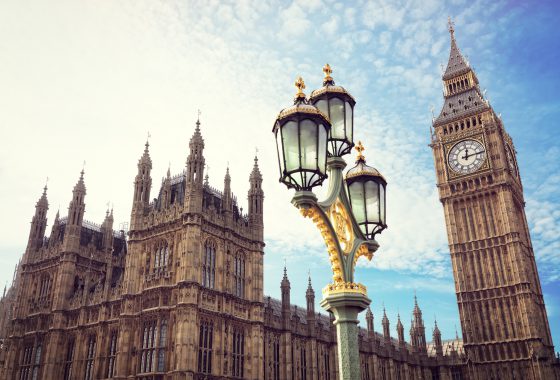Government urged to explore salaried GP service by Lords

The traditional model of general practice is ‘no longer fit for purpose’ and the Government should explore a future where GPs are under its ‘direct employment’, an influential committee has recommended.
The House of Lords Committee on the Long-term Sustainability of the NHS, set up in May last year to scrutinise the Government’s longer term planning for healthcare, said that the ‘small business model’ of general practice is ‘inhibiting change’ that is necessary to put the NHS on a sustainable footing.
The committee also criticised successive governments for their ‘short-sightedness’ and failure to plan for the longer term of health services in general, recommending that an independent ‘Office for Health and Care Sustainability’ is established look 15-20 years into the future.
On general practice, the report said: ‘The traditional small business model of general practice is no longer fit for purpose and is inhibiting change. NHS England, with the help of the Department of Health and the profession, should conduct a review to examine alternative models and their contractual implications.
‘The review should assess the merits of engaging more GPs through direct employment which would reflect arrangements elsewhere in the NHS.’
Lord Patel, chair of the committee, a cross-bench peer and an obstetrician, said there was ‘a shocking lack of long-term strategic planning in the NHS’, with the Department of Health ‘failing to think beyond the next few years’.
He said that ‘to solve this we need a new body that is independent of government and is able to identify clearly the healthcare needs of a changing and ageing population and the staffing and funding the NHS will require to meet those needs’, which ‘will need to look ahead and plan for 15-20 years into the future’.
He added: ‘We also think it is time to look at the way care is delivered. This may well involve changing the model where GPs are self-employed small businesses.
‘Delivering health care fit for the 21st century requires improvement in primary care to relieve pressure on hospitals. That change should be delivered by GPs.’
Dr Patel also said that the Government ‘will need to recognise the NHS will need more money’, with NHS spending needing to ‘rise at least as fast as GDP for 10 years after 2020’.
In all, the committee’s work concluded with 34 recommendations, also including:
- Following years of NHS pay restraint, the Government should commission an independent review to ‘examine the impact of pay on morale and retention’;
- The DH should become the ‘Department of Health and Care’, with responsibility for adult social care at a national level ‘to allow money and resources to be used more effectively’;
- The Government should stop cuts to funding for the public health budget which are are ‘short-sighted and counter-productive’;
- And it should clarify to patients, via the NHS Constitution, their responsibility for their own health, while also running a national campaign highlighting the danger of obesity.
Commenting on the findings, RCGP chair Professor Helen Stokes-Lampard said that although GPs are ‘open to new ways of working’, there was ‘no one-size-fits-all approach’ and GP practices ‘must be able to choose the best ways of working to offer services that local populations want and need’.
She said: ‘The independent contractor model of general practice service delivery brings important benefits and must be nurtured and maintained as an option going forward.
‘It has been a trail blazer for innovation in general practice and created the excellent service that patients rely on and value, as well as providing great value for money to the NHS. This continues today with many GP partnerships taking the lead in developing new models of care.
‘The college recognises that the partnership model in some areas is struggling – principally as a result of years of underfunding, and recruitment difficulties – but this is not a reason to give up on it.’
GPs being pushed out of partnership?
In a hearing with the Lords committee in December last year, NHS England chief executive Simon Stevens said that GPs were willing to consider ‘radical’ changes to their model of practise because they have been ‘systematically under-invested in’.
As for the future of the small business model, NHS England announced plans to incentivise all GP practices to work in networks covering 30-50,000 patients
And Pulse has previously reported on the partners jumping ship from their GP practices, amid sustained underfunding of general practice.
Meanwhile, more than half of partners have said they are willing to consider a salaried role if offered the right deal.
Pulse October survey
Take our July 2025 survey to potentially win £1.000 worth of tokens











